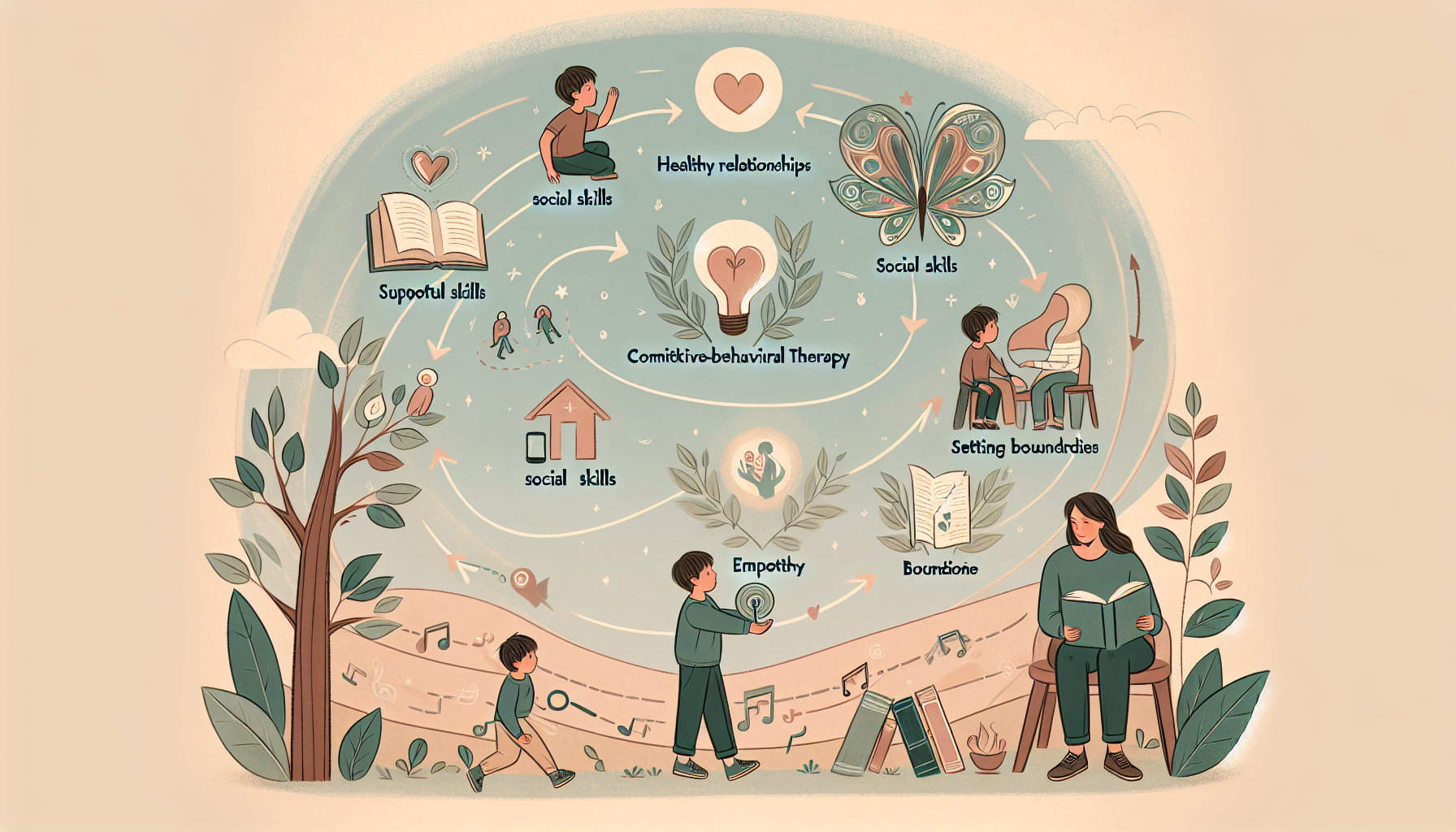“`html
How to Teach Children About Healthy Relationships
Healthy relationships are the cornerstone of a happy and fulfilling life. As parents, teaching children about healthy relationships is one of the most important life skills you can provide. Building social skills, fostering empathy, and guiding kids on how to set boundaries are all vital aspects of this process. In this article, we’ll explore practical strategies to help parents nurture these skills in their children.
Why Healthy Relationships Matter
Healthy relationships are essential for mental and emotional well-being. Children who learn how to communicate effectively, resolve conflicts, and express their emotions grow up to be more resilient and socially adept adults. These skills also contribute to their sense of safety and autonomy, two core psychological needs for healthy development.
Studies in child psychology show that kids who develop strong social skills are less likely to experience anxiety, depression, and other mental health challenges later in life. Teaching healthy relationships early on sets the foundation for positive interactions with friends, family, and future partners.
Key Principles of Teaching Healthy Relationships
To effectively teach children about healthy relationships, it’s important to focus on the following principles:
- Model Healthy Behavior: Children learn by observing. Demonstrate respectful communication, active listening, and problem-solving in your own relationships.
- Foster Empathy: Encourage your child to consider other people’s feelings and perspectives. Empathy is a foundational skill for building strong connections.
- Teach Boundaries: Help children understand the importance of setting and respecting boundaries, both physical and emotional.
- Encourage Emotional Expression: Create a safe space for your child to express their emotions and teach them constructive ways to handle those emotions.
How Cognitive-Behavioral Therapy (CBT) Principles Can Help
Cognitive-behavioral therapy (CBT) offers valuable tools for teaching children about healthy relationships. CBT focuses on identifying and changing unhelpful thought patterns, which can be particularly beneficial when helping kids navigate social situations and conflicts.
Here are a few CBT-inspired strategies parents can use:
- Reframing Negative Thoughts: Encourage your child to view challenging situations from a different perspective. For example, if a friend doesn’t invite them to a party, help them understand that it might not be personal.
- Role-Playing: Practice common social scenarios with your child, such as introducing themselves to new friends or resolving a disagreement. This builds confidence and equips them with practical skills.
- Problem-Solving Skills: Teach your child how to identify problems, brainstorm solutions, and weigh the pros and cons of different approaches.
Practical Tips for Parents
Building social skills and teaching healthy relationships doesn’t have to be complicated. Here are some actionable tips for parents:
1. Start Early
Even young children can learn the basics of healthy relationships. Teach them to share, take turns, and say “please” and “thank you.” These small lessons lay the groundwork for more complex social interactions.
2. Read Books About Friendship and Empathy
Books are a great way to introduce concepts like kindness, forgiveness, and understanding. Look for stories that feature characters navigating friendships and resolving conflicts.
3. Encourage Open Communication
Let your child know they can talk to you about anything. Validate their feelings and listen without judgment. This helps build trust and teaches them the value of honest communication.
4. Set Clear Expectations
Establish family rules around respect and kindness. For example, explain that name-calling or hitting is never acceptable and discuss alternative ways to handle frustration.
5. Use Media as a Teaching Tool
Movies and TV shows often depict relationships—both healthy and unhealthy. Watch together and talk about what the characters are doing right or wrong. This can open up discussions about real-life scenarios.
Addressing Challenges
Teaching healthy relationships is not always easy. Children might encounter peer pressure, bullying, or difficulty managing their emotions. As a parent, it’s important to stay patient and supportive.
Here are some ways to address these challenges:
- Dealing with Peer Pressure: Teach your child how to say “no” confidently and stand up for themselves in a respectful way.
- Managing Bullying: If your child is being bullied, listen to their concerns and work with their school to address the issue. Teach them strategies to stay safe and seek help when needed.
- Handling Emotional Outbursts: Help your child recognize and label their emotions. Encourage them to take deep breaths or use calming techniques when they feel overwhelmed.
Conclusion
Teaching children about healthy relationships is one of the best gifts you can give them. By fostering empathy, setting boundaries, and encouraging open communication, you equip your child with the tools they need to navigate the complexities of human interactions.
Remember, the most effective way to teach these skills is by modeling them yourself. Show your child what a healthy relationship looks like, and they’ll be more likely to emulate those behaviors in their own lives.
For more parenting advice and tips on building social skills, explore other articles on the Child Mind website. Together, we can raise a generation of emotionally intelligent and socially capable individuals.
“`

